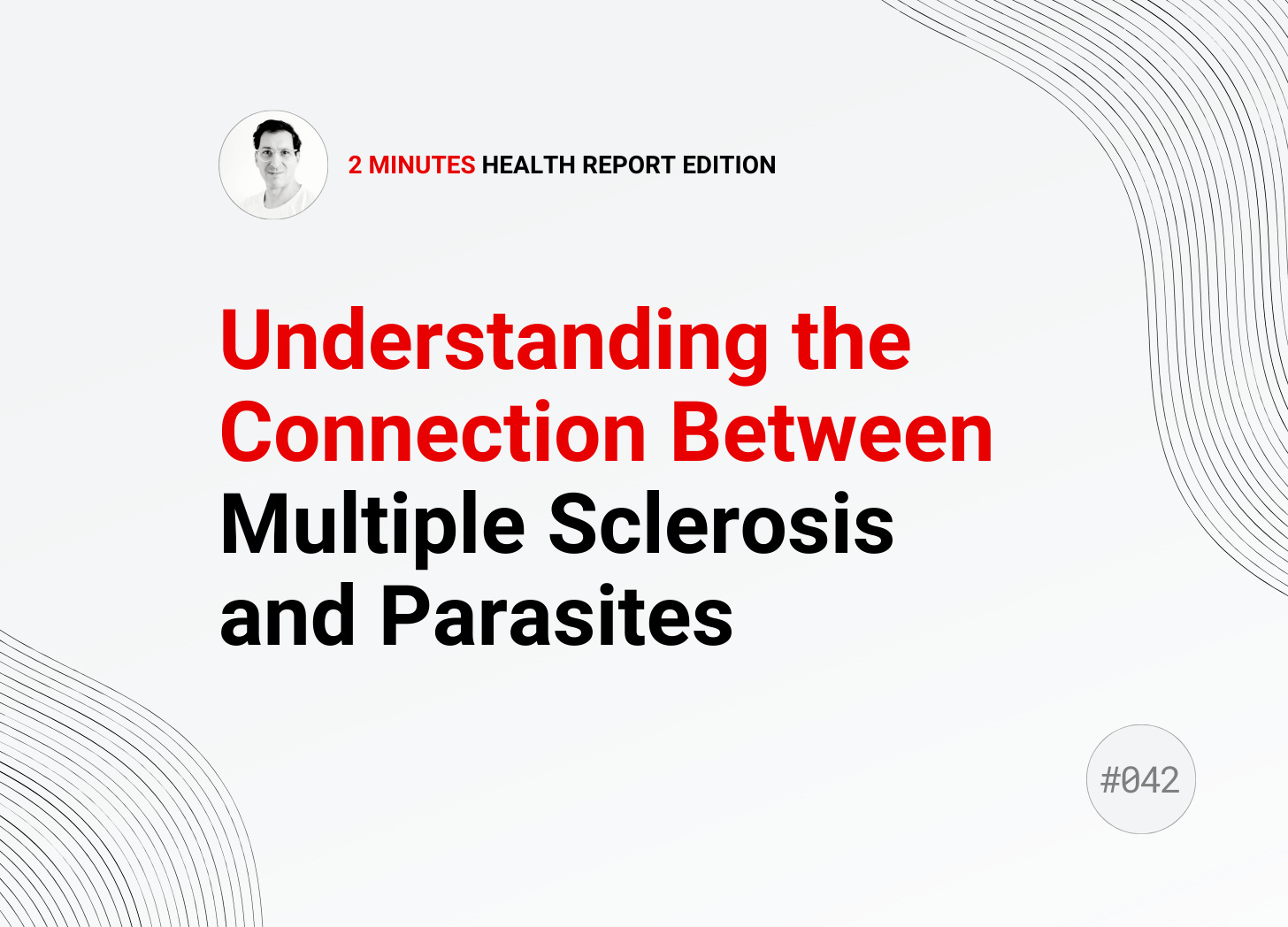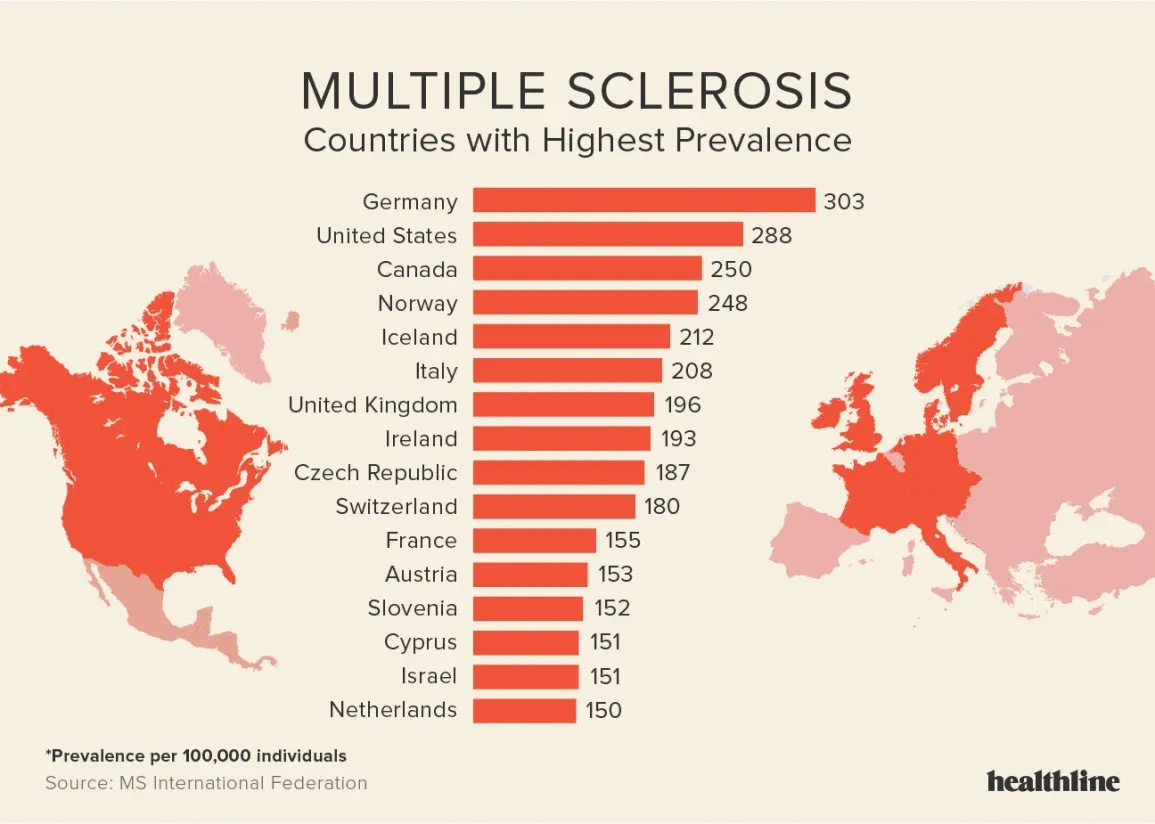#042 Understanding the Connection Between Multiple Sclerosis and Parasites: A Comprehensive Guide
👋 Hey, I’m Cyril and welcome to a 🔒 subscriber-only edition 🔒 of Democratising Health For All. Each week I explore the dynamic synergy between consumers, healthcare and pharma, in my quest to provide insights to promote a long healthy and a pain-free life
Discover the link between multiple sclerosis (MS) and parasitic infections in this comprehensive guide. Delve into the potential impact of parasites on MS progression, explore the latest research findings, and understand the mechanistic explanations behind alternative parasite cleanse treatments.
Understanding Multiple Sclerosis
Multiple sclerosis is a chronic autoimmune disorder affecting the central nervous system. The immune system mistakenly attacks myelin, the protective covering of nerve cells, leading to various symptoms. Symptoms vary widely, including fatigue, gait issues, numbness/tingling, vision problems, muscle weakness, cognitive problems, emotional changes, and bladder/bowel dysfunction. MS progression is unpredictable, with varying degrees of severity and periods of relapses and remissions.
Epidemiology of Multiple Sclerosis
As we examine the global occurrence of MS, more than 2.8 million individuals worldwide are affected. The prevalence of this condition is on the rise, revealing significant differences in disease burden among various racial, ethnic, and geographic groups. Continuous research endeavors seek to deepen our comprehension of the disease and its far-reaching impact on a global scale..
Risk Factors for MS: Small Lap Dogs and Childhood
Research links childhood exposure to small lap dogs with an elevated risk of developing multiple sclerosis (MS). A case-control study found increased MS risk associated with early adolescence exposure to animals, particularly lap dogs, within ten years of symptom onset. Although suggesting a potential link, further research is required for careful interpretation, exploring biological mechanisms and potential prevention opportunities for pediatric immune system modulation.
Helminth Infections and MS: Mechanistic Insights
Dr. Alan B. MacDonald reportedly found nematode worms in the brains/spinal cords of MS patients during autopsies. However, these findings lack peer-reviewed support, limiting their credibility. MS is defined as a chronic inflammatory central nervous system disease, with proposed causes including genetics, environment, and a potential virus-triggered immune response. Parasites that can invade the central nervous system include neurocysticercosis, toxoplasmosis, cerebral malaria, and human African trypanosomiasis, requiring prompt recognition and treatment for reducing mortality and post-infection disabilities.
Infection by Helminths and Its Link to MS
Helminths, parasitic worms in humans, enter through various means. The hygiene hypothesis suggests that reduced childhood helminth exposures may heighten susceptibility to autoimmune diseases like MS. Research on helminthic therapy lacks conclusive evidence for standard MS treatment, but studies show an inverse association between MS and helminth infections. Helminths may influence MS by inducing regulatory B cells and favoring a protective Th2 response.
Current MS Treatments and Alternative Medicines
Current MS treatments focus on controlling the condition and relieving symptoms. These include corticosteroids for relapses, disease-modifying therapies (DMTs) like ocrelizumab and natalizumab, and symptom-specific medications. Emerging therapies, such as stem cell transplants, are under investigation to reset the immune system and reduce inflammation. While there is no definitive cure, pharmaceutical approaches aim to manage MS activity and symptoms, with ongoing research exploring alternative modalities, including the potential anti-inflammatory effects of parasitic infections.
Alternative Medicines for MS
Patients often explore complementary and alternative medicines (CAM) for multiple sclerosis (MS). Limited evidence supports safety and efficacy. Promising CAM therapies include a low-fat diet, omega-3 fatty acids, lipoic acid, and vitamin D supplementation for potential anti-inflammatory and neuroprotective effects. Botanicals like black walnut, pau d’arco, clove, and olive leaf, believed to have antimicrobial qualities, are included in parasite cleanse formulations. Black walnut and pau d’arco target parasites, and clove and olive leaf may combat fungi and parasites.
This is a 2 Minutes Health Report Edition.
Keep reading the full edition with a 7-day free trial
A premium subscription gets you:
Weekly actionable insights to improve your mental or physical health
Subscriber-only long-form articles and full archive
In-depth research papers backed by medical research
Personalized health responses to your questions
Special rates on my books






